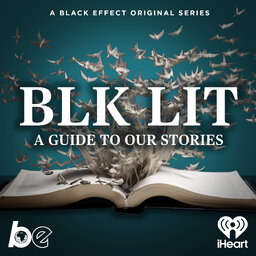BLK LIT: Langston Hughes - We, Too: The Life, Legacy and Longevity of a Poet
The Black Effect Presents... BLK LIT!
This episode of BLK LIT delves into the life and legacy of Langston Hughes, a pivotal figure in the Harlem Renaissance. Dr Carmaletta Williams - CEO, of Black Archives of Mid-Amercia joins the conversation to explore Langston's early life, struggles, and the hustle that defined his journey as a poet. It highlights the cultural impact of his work, the intersection of music and poetry, and the themes of faith and skepticism in his writing. The episode concludes with a tribute to Nikki Giovanni, emphasizing the enduring influence of Hughes' art on future generations.
Learn More: The Black Archives of Mid-America
Read: Langston Hughes in the Classroom: "Do Nothin' till You Hear from Me"
My Dear Boy: Carrie Hughes Letters to Langston Hughes, 1926-1938
Connect with the Host: Jacquees Thomas @_ThatsPeace
Join The Collective Writing Community BLKWritersRoom.com
A Black Effect Original Series
In 2 playlist(s)
BLK LIT
BLK LIT highlights the creative wordsmiths of our current and past generations. We will delve into t…Social links
Follow podcast
Recent clips

Roundtable Discussion: Sky Full of Elephants
40:04

The Book Clubs Selected: Sky Full Of Elephants
57:58

The Becoming of Cebo Campbell
52:12
 BLK LIT
BLK LIT
